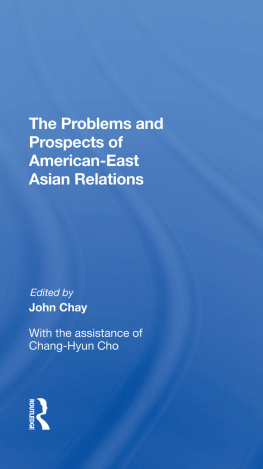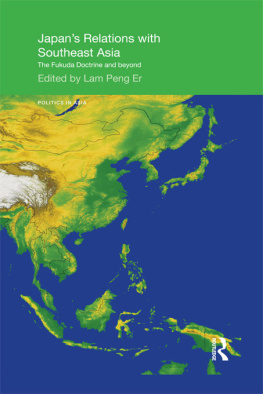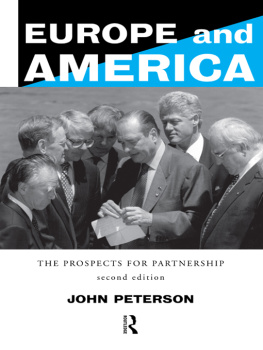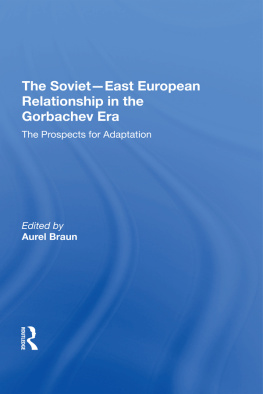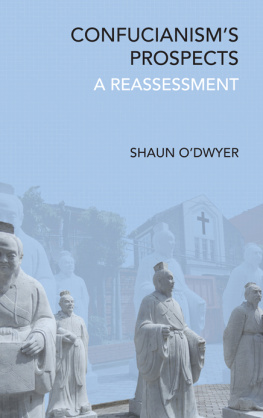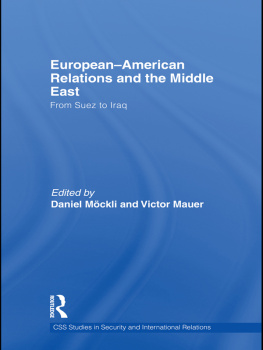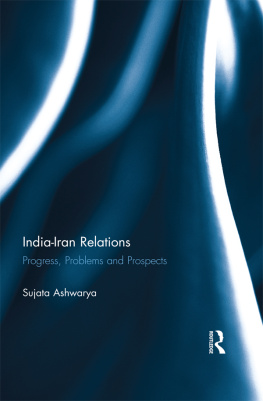The Problems and Prospects of American-East Asian Relations
Westview Special Studies on China and East Asia
The Problems and Prospects of American-East Asian Relations Edited by John Chay
This issue-oriented, multdisciplinary approach to American-East Asian relations asks provocative questions and presents a thoughtful appraisal of the situation today. Using a wide range of sourcesamong them, recently declassified government documentsthe authors examine U.S. relations with China, Japan, and Korea. Issues discussed include the "new policy" toward the People's Republic of China (Was there, in fact, a sudden shift in U.S. policy?); the attitudes of the American people and Congress toward the Republic of China; the friction between the United States and Japan and the implications of the existing imbalance in trade between the two countries; and the potential for continuing and increasing problems in U.S.-Korean relations. Throughout, the authors present an analysis of past and current conditions as a tool for use in formulating sound, effective policy for the future.
John Chay is professor of history and chairman of the Department of History at Pembroke State University. Since 1974 Dr. Chay has been executive director of the North Carolina Southeastern Consortium for International Education.
Other Titles in This Series
Women in Changing Japan, edited by Joyce Lebra, Joy Paulson, and Elizabeth Powers
Cadres, Commanders, and Commissars: The Training of the Chinese Communist Leadership, 1920-45, Jane L. Price
The People's Republic of China: Mineral Resources and Basic Industries, K.P. Wang
The Chinese Military System, Harvey Nelsen
The Problems and Prospects of American-East Asian Relations
Edited by John Chay
With the assistance of Chang-Hyun Cho
First published 1977 by Westview Press, Inc.
Published 2019 by Routledge
52 Vanderbilt Avenue, New York, NY 10017
2 Park Square, Milton Park, Abingdon, Oxon OX14 4RN
Routledge is an imprint of the Taylor & Francis Group, an informa business
Copyright 1977 Taylor & Francis
All rights reserved. No part of this book may be reprinted or reproduced or utilised in any form or by any electronic, mechanical, or other means, now known or hereafter invented, including photocopying and recording, or in any information storage or retrieval system, without permission in writing from the publishers.
Notice:
Product or corporate names may be trademarks or registered trademarks, and are used only for identification and explanation without intent to infringe.
Library of Congress Cataloging in Publication Data
Main entry under title:
The Problems and prospects of American-East Asian relations.
(Westview special studies on China and East Asia)
Revised papers from a symposium held at Pembroke State University in the spring of 1973.
1. East (Far East)Foreign relationsUnited StatesCongresses. 2. United StatesForeign relationsEast (Far East)Congresses. I. Chay, John. II. Cho, Chang-Hyun.
DS518.8.P7 327.5'073 76-27694
ISBN 13: 978-0-367-28434-3 (hbk)
Contents
Akira Iriye
Ishwer C. Ojha
Norman A. Graebner
Douglas H. Mendel, Jr.
James W. White
Kazuo Sato
Tong-Whan Park
John Chay
John P. Lovell
Pong S. Lee
Because of the enhanced importance of the Pacific region after the turn of the century, and, in particular, because of the agonizing experience of the Vietnam War, American-East Asian relations have become increasingly significant in the American scholarly world as well as in the arena of foreign policy-making. During the past decade or so, centers of international and area studies in the United States have paid special attention to this subject; most significantly, the establishment in 1968 of the Committee on American-East Asian Relations of the American Historical Association, under the leadership of Ernest R. May, was an important step toward achieving a greater understanding. The publication in 1972 of American-East Asian Relations: A Survey, a chronological historiographical survey of the subject from its beginning to the end of the 1960s, represented a challenge to serious students as well as an important groundwork. The present volume is, in a sense, a response to that challenge: it is an issue-oriented, multidisciplinary analysis.
In the spring of 1973, a symposium was held at Pembroke State University in North Carolina. Seventeen specialists in the field of American-East Asian relations met to examine problems and prospects in the field. The symposium was organized into three divisionsAmerican-Chinese, American-Japanese, and American-Korean relationsand three papers were presented in each of these subfields. Eventually, six of the symposium papers were revised and edited for this volume: those presented by Norman A. Graebner, James W. White, Kazuo Sato, John P. Lovell, Ishwer C. Ojha, and myself. Later, four other active scholars in the field of American-East Asian relationsTong-Whan Park, Akira Iriye, Pong S. Lee, and Douglas H. Mendelconsented to write chapters for this volume.
Following the format used for the symposium, the book includes an introduction and nine chapters in three divisions. Akira Iriye in the introduction presents a fresh examination of the cold war in Asia. Ishwer C. Ojha then gives an overall analysis of American-Chinese relations in the three decades after World War II. Norman A. Graebner's views of the American image of China and Douglas H. Mendel's analysis of American-Formosn relations follow. A general survey of American-Japanese relations is provided by James W. White, followed by Kazuo Sato's study of economic relations and Tong-Whan Park's analysis of energy relations. In the last section, the editor of this volume provides a sweeping survey of the entire period of American-Korean relations, while John P. Lovell and Pong S. Lee concentrate on the security and economic aspects.
These chapters are based on serious research and solid scholarship, but some of them are purposely speculative; it is hoped that both of these aspects will be useful for an understanding of the subject.
Among the many people who made the symposium and book possible, Dr. Carl M. Fisher was most important. The vice-chancellor for academic affairs at Pembroke State University at the time of the symposium, Dr. Fisher provided strong leadership for the intellectual enterprise. The assistance of Chang-Hyun Cho of Pembroke State University was valuable to both the symposium and the publication of this volume. The approval and support of Chancellor English E. Jones of Pembroke State University were very important, as were the interest and support of Vice-Chancellor W. Howard Dean and Dean Richard C. Pisano. The symposium benefited greatly from the participation of Ernest R. May, Robert A. Scalapino, Young Chin Kim, Soon-Sung Cho, and James C. Hsiung. Hungdah Chiu of the University of Maryland Law School, Grace E. Gibson, Raymond J. Rundus, Thomas J. Leach, Richard R. Vela, David K. Eliades, and Jeffery A. Miruscolleagues at Pembroke State University-were all extremely generous in providing editorial assistance. My personal thanks go to Shirley Deese for her devoted service in typing the entire manuscript. Last, because no book is written in a vacuum, the editor wishes to thank the readers of this volume for their interest and encouragement.


